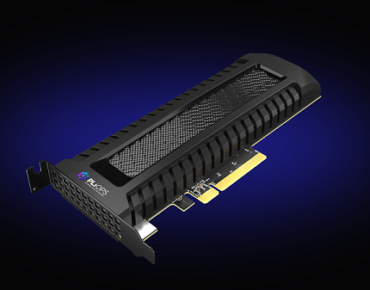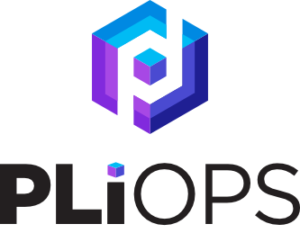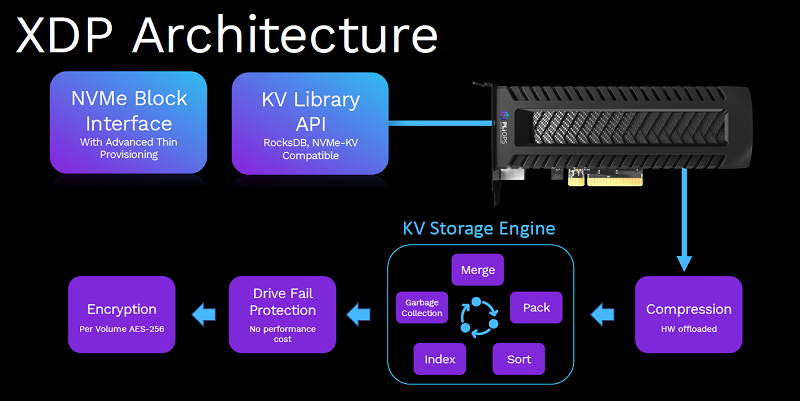Pliops’ Extreme Data Processor Aims to Help Enterprises Make SSD Storage Faster, More Efficient

Solid state drives (SSDs) are plenty fast, but Pliops thinks they can be even faster for enterprise users with heavy data workloads.
To help speed up the processing of storage and data on SSDs, Pliops has introduced its new Extreme Data Processor (XDP), which is a PCIe card loaded with components targeted at solving the problem of fast storage that is hindered by existing data center bottlenecks.
“We are big fans of SSDs. the whole company is built from people that have spent their careers in SSDs and software-defined storage,” Steve Fingerhut, Pliops president and chief business officer, told EnterpriseAI. “Everyone wants to use flash memory for everything right, but that is the problem. You put an SSD in a server – it is 1,000 times faster than a hard drive – but you do not get anywhere near that type of performance boost because the rest of the system is not keeping up.”
That’s where the Pliops XDP comes in, said Fingerhut.
“What we are offering is our data processor which comes in this form, a low profile PCIe card that sits in any standard server,” said Fingerhut. “We are not selling the flash. We work with anybody's flash that they are already buying.”
The XDP card manages the data before it gets read/written to the SSD and speeding it up to take advantage of the inherent benefits of the SSD infrastructure, he said. The card looks like another drive in the system and takes over to manage the drives. The card uses hardware-based techniques to compress the data on the SSDs, rather than less efficient software-based methods, he said.
“This is our magic which is called a storage engine,” said Fingerhut. “What we are doing is we are reducing the data packet as efficiently as possible and making sure that across multiple SSDs, if one of them fails, everything continues to operate at a very high performance level."
Without the XDP card, enterprises using SSDs amid traditional data center bottlenecks are “basically leaving a ton of the SSD performance on the table and not getting the gains that you should with an SSD,” said Fingerhut. “An SSD can easily do 500,000 IOPs, while a hard drive can do 200 IOPs on a good day. So. SSDs are literally 1,000 times faster, and nobody is taking advantage of that full performance.”
 In data centers, these huge demands are placed on CPUs under current architectures, he said. “A lot of these functions are on the host if you try to run a very high performance system. It can take half the cores of the system.”
In data centers, these huge demands are placed on CPUs under current architectures, he said. “A lot of these functions are on the host if you try to run a very high performance system. It can take half the cores of the system.”
Those bottlenecks mean that systems are reading and writing up to 100 times more data to the SSD than necessary, which is crushing SSD performance due to the extra, unneeded demands, said Fingerhut.
“We eliminate all of that extra work through our XDP data processor, so it gives higher performance, better reliability and longer life from your flash,” he said.
“SSDs are 10 times more expensive than hard drives,” said Fingerhut. “So, the value of trying to compress and minimize that data is huge.”
Using the XDP cards in their servers, enterprises can get 50 percent to 80 percent better TCO figures from existing infrastructure, he said. “This is a huge problem for data centers.”
 The XDPs are built to bring improved processing power and storage scalability for relational, NoSQL and in-memory databases, analytics, AI/ML, 5G, IoT and other data-intensive applications, according to the company. The XDP cards work with any server and are plug-and-play using a standard block interface. They require no application changes for optimal performance.
The XDPs are built to bring improved processing power and storage scalability for relational, NoSQL and in-memory databases, analytics, AI/ML, 5G, IoT and other data-intensive applications, according to the company. The XDP cards work with any server and are plug-and-play using a standard block interface. They require no application changes for optimal performance.
Pliops XDP allow users to store up to 128TB of compressed data on 64TB of SSDs. The cards support all data center SSDs.
Founded in 2017, Pliops has raised $115 million so far from investors including Expon Capital, Intel Capital, Koch Disruptive Technologies, Nvidia, SoftBank Ventures Asia, State of Mind Ventures, Viola Ventures, Western Digital and Xilinx.
Joseph Unsworth, a semiconductor, flash memory and SSD analyst with Gartner, told EnterpriseAI that the Pliops technology is intriguing because application workloads continue to push the boundaries of SSD performance and capacity.
“For large deployments, this technology can exploit current and next gen flash technology (QLC) without requiring disruptive system changes,” said Unsworth. “Pliops is a nascent company with a compelling product, so their success will largely be dictated by their go-to-market strategy and ability to execute.”
The XDP cards are a fit for enterprises with large SSD deployments where the value delivered and ROI would be quickly justified, said Unsworth.
“I do not see this as a fit for small/medium enterprises with modest performance and capacity needs,” he said. “This is about getting the full TCO of existing SSD deployments at massive scale while improving application responsiveness but maintaining and improving high availability for mission critical workloads. Gartner has asserted that low-cost, QLC flash technology is an imperative for the industry and this technology can also enable its use at scale.”












